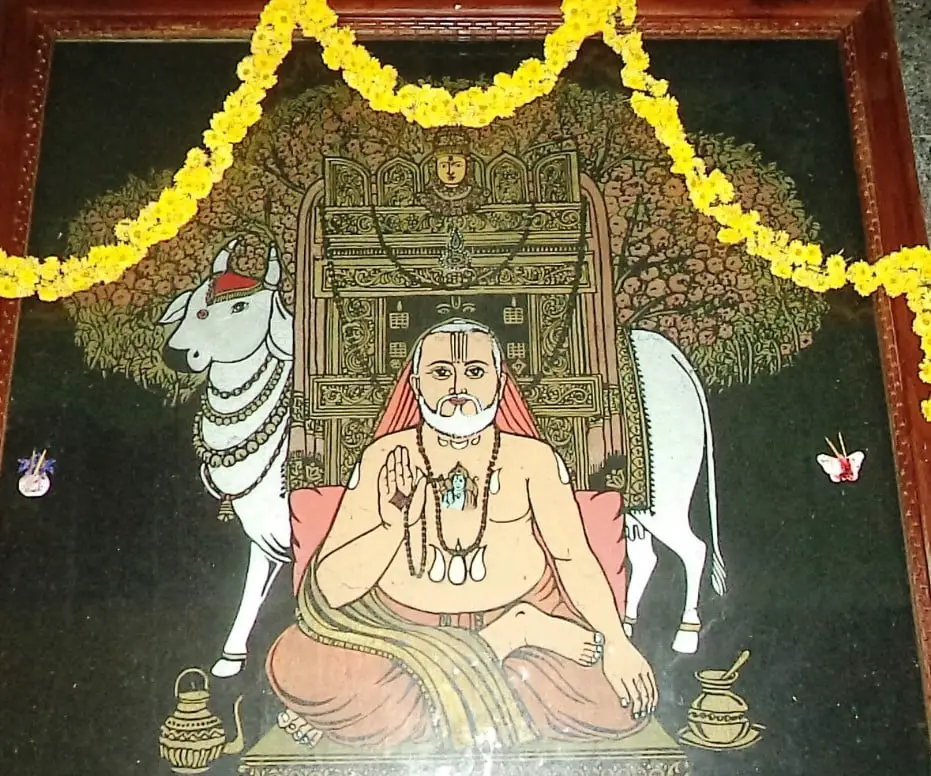Sri Raghavendra Swamy: Scholar, Saint, and Devotee
Sri Raghavendra Swamy (1595-1671), also known as Raghavendra Tirtha, was a revered 16th-century saint who left a lasting mark on both Bhakti (devotional worship) and Hindu philosophy.
Early Life and Spiritual Journey:
- Born as Venkanna Bhatta, Raghavendra Swamy displayed a deep inclination towards spirituality from a young age.
- He became a disciple of Sudheendra Tirtha, a renowned scholar of the Dvaita Vedanta school of philosophy, propounded by Madhvacharya.
- He received the name Raghavendra Tirtha and rose to become a prominent scholar himself, well-versed in scriptures and philosophy.
Contributions to Bhakti and Philosophy:
- Spreading Dvaita Vedanta: Raghavendra Swamy was a staunch advocate of Dvaita Vedanta, which emphasizes the dual nature of reality – God (Vishnu) and the soul (Jiva) being distinct. He wrote extensive commentaries on the works of Madhvacharya, Jayatirtha, and Vyasatirtha, making these complex philosophical concepts more accessible to devotees.
- Bhakti through scholarship and devotion: While deeply intellectual, Raghavendra Swamy also emphasized the path of Bhakti. He composed devotional hymns under the name Venu Gopala, expressing his love for Lord Vishnu.
- Leading by example: He lived a life of piety and austerity, inspiring others through his personal conduct. His leadership as the pontiff of the Matha (monastery) at Kumbakonam further strengthened its position as a center for Dvaita Vedanta learning.
Legacy:
- Mantralayam and the Matha: He was associated with the town of Mantralayam in Andhra Pradesh. His samadhi (tomb) shrine there is a major pilgrimage site for devotees. The Matha he revitalized, now known as Sri Raghavendra Swamy Matha, Mantralayam, continues to be a prominent institution for Dvaita Vedanta scholarship and spiritual practice.
- Miracles and enduring devotion: Devotees revere Raghavendra Swamy for his miracles and his continued presence, even after his physical death. His life story and teachings inspire followers to this day.
Further Exploration:
If you’d like to delve deeper, you can explore these resources:
- Sri Raghavendra Swamy Matha, Mantralayam website
- Wikipedia article on Raghavendra Tirtha
- Information on Dvaita Vedanta philosophy

